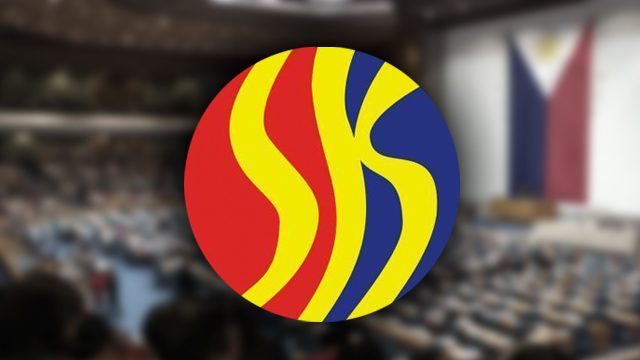SUMMARY
This is AI generated summarization, which may have errors. For context, always refer to the full article.

MANILA, Philippines – A measure to reform the Sangguniang Kabataan (SK or youth council) hurdled the committee level at the House of Representatives on Wednesday, January 27.
This transpired as Congress seems poised to postpone anew the SK elections, currently scheduled for February 21, to give way to the legislation and passage of reforms.
The House committee on local government unanimously approved a consolidated bill introducing reforms to the beleaguered youth representation system.
The approved bill provides for the adjustment of the age bracket for youth officials and voters, fiscal autonomy for the SK, and an anti-dynasty clause.
If signed into law, the measure will raise the age bracket of eligible SK officials to 18-21 years old, from 15-17 years old, thus increasing their level of accountability. The age of eligible SK voters will likewise be expanded to 15-21 years old.
An anti-dynasty provision was also adopted in the bill, requiring that SK officials “must not have any relative in elective public office within the second degree of affinity or consanguinity.”
In addition, the SK officials would be given greater freedom in its operations, disbursements and encashment of their fund, income and expenditures.
Akbayan party-list Representative Ibarra Gutierrez, among the bill’s principal authors, lauded the House committee’s approval.
“This is a positive step in the right direction towards protecting and ensuring that our young peoples’ right to participation and suffrage are assured and protected,” Gutierrez said in a statement.
The reform bill, he added, is the response of Congress “to the heightened public clamor to weed out partisan politics and the inherent weaknesses that characterized the old SK system.
“With the approval of the proposed reforms, we make certain that the elected leaders are fully able and effective to lead and represent the interests of the youth,” he said.
To fully equip the youth officials in undertaking these tasks, the proposed measure would require them to undergo mandatory training and seminars on leadership and program development, “which shall enable them to effectively identify the projects and programs that will best serve their constituents,” the representative said.
Gutierrez hoped that the SK reform law would pass in both houses of Congress before the second regular session ends in the middle of the year to prepare for the next SK elections, which are likely to be postponed for a second time.
The House of Representatives in December passed a bill postponing the SK polls anew to October 2016.
On Friday, January 23, the Senate committee on local government approved the House’s postponement bill. The Senate then approved the measure on second reading Tuesday.
The SK elections were originally scheduled for October 28, 2013, but were rescheduled to February 21, 2015, following the enactment of Republic Act 10632, which postponed the polls. – Michael Bueza/Rappler.com
Add a comment
How does this make you feel?
There are no comments yet. Add your comment to start the conversation.